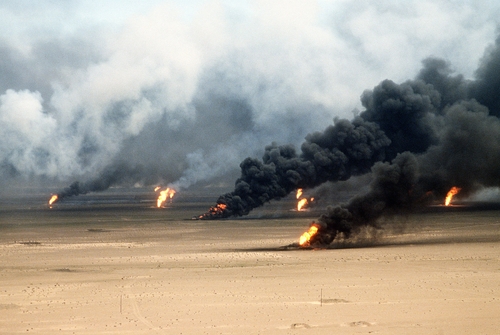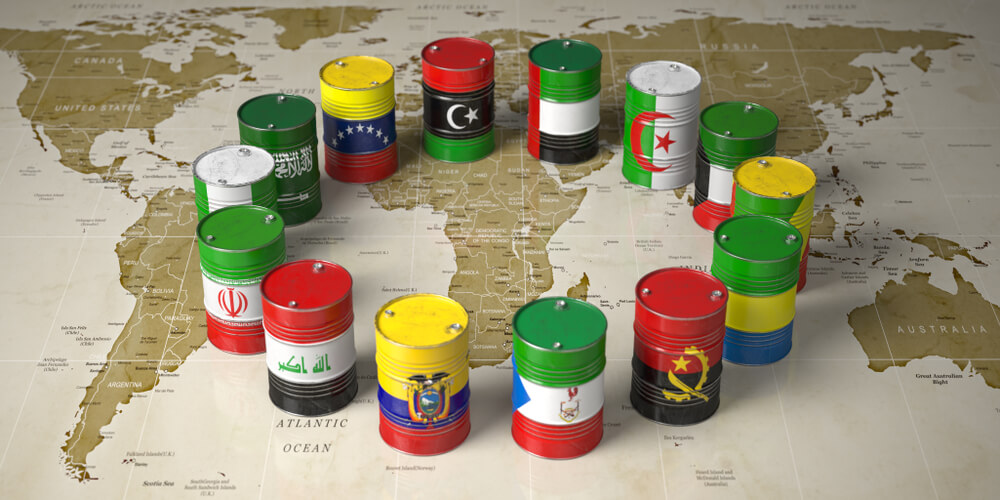Crude oil is not a light political issue; otherwise, it would’ve been solved a long time ago. The main thing here is the realization that we are transitioning rapidly from fossil fuels to low-carbon electricity and renewables. This progress is excellent for our planet.
Still, politics and big companies don’t like it. What’s also debatable is that energy forecasting institutions are underestimating the speed of transition and its value.
The financial sector knows well what is going on and talks about the change already. If we look at historical events of this kind, we can see similar shifts of energy. Analyzing the shift from wood to coal or the adoption of nuclear power, we can predict the challenges of another big transition in the energy sector.
These transitions become triggered by many factors, such as technological changes to clean energy causing a market upheaval. Technology usually pushes the transition forward. In the crude oil case, climate change was the one that tried to change the tides for decades.
Often politicians gathered, prepared to sign the act to try a lower-carbon economy for the sake of our planet’s future. But the United States would not agree to it.
In many places, concerns are growing over air quality, and it’s becoming hard to live in those areas without a mask. This concern made government policy support the transitions to renewable energy. Especially since there are also lower costs of renewables and electric vehicles taking over the market.
Oil Price Shock
In recent times, big concerns are arising over oil prices. It wouldn’t be the first time. It means the rise in oil prices would be independent of any movement in crude oil price. This phenomenon is known as “OECD disease.”
Oil geopolitics can become very serious. Particularly if the transition of low-carbon electricity and renewables occurs before the energy establishment predicts it will.
It would mean many oil-exporting countries would face an economic crisis. As the demand for oil and gas declines significantly, the MENA (the Middle East & North Africa) will face the biggest hit. Oil politics in the Middle East is very severe. Since 2011, it has had a significant upheaval due to its oil resources.
Migration Problems
If economic and political changes occur in Africa and the Middle East, migration problems will become severe for Europe. Bear in mind that oil geopolitics plays a central role in international relations for over 120 years. As a result, it caused many conflicts in the past. We are virtually in the status quo right now, but this could change overnight with the rise of renewables.
Renewables can be widely produced and used, and fuel suppliers don’t constrain them. There is no threat of any physical disruption. Yes, there are constraints regarding some minerals that are crucial for renewable technologies.
But they are far less than the oil supply conflicts that occur. Oil geopolitics can quickly fade away if we find a way to manage it as the transition continues.
Crude Oil Politics
Structural imbalances in natural supply make the foundations of crude oil politics and create energy trade dynamics. Crude geopolitics include energy transit routes and various conflicts over security and access issues. Now think about renewable electricity – there are multiple ways to implement it. We can start generating electricity by using big centralized facilities, all in a decentralized manner.
This underpins the crude oil market, and geopolitics can quickly disappear once renewables are there. While this can lessen conflicts over energy, the changes will not happen right away. Many countries will become angry over hydrocarbon dismission.
Military Issues
Throughout history, there were many disruptions of oil supply because of armed conflict. We can say conflicts because various natural resources have taken their toll. Moreover, it seems that these types of wars have decreased in the last few decades, but they are still present. 
The main problem is these conflicts hugely disrupt gas and oil production. These issues prevent them from reaching normal production levels.
The solutions would be for producers to maintain stocks and invest unused capacity. As the majority knows, the most prominent provider has been Saudi Arabia. It has the most unused capacity, making it a great investment cost.
The Market
We can’t forget the stock market and taking care of stocks since it’s crucial for price volatility containment. Unfortunately, the strategic reserves we mentioned previously are of no use here because we cannot use them for any market intervention. The EU should act in this case by establishing a public agency that could invest in storage facilities. From there on, these could be offered to oil producers for use and at a low cost.
This type of agency can have the power to give convertible certificates – or rather oil deposited so the oil can get withdrawn from storage. These would be called stored oil certificates, and they would face regulation through financial institutions as collateral.
This type of “oil bank” would encourage companies to invest in capacity additions anticipating demand while contributing to better supply conditions. Until then, we can only hope things won’t get too messy.










